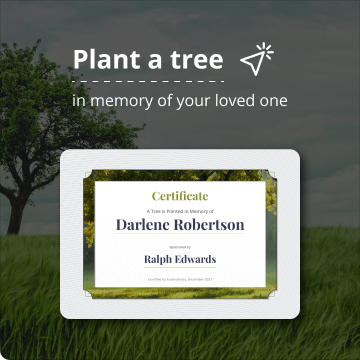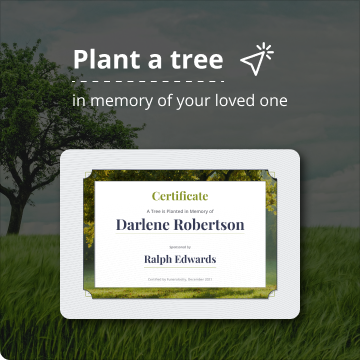
When a loved one dies, you might have questions regarding funeral services and how to make funeral arrangements. Here are answers to some of the most frequently asked questions regarding burial and cremation services.
- What are funerals?
▢ Funeral services are important events to acknowledge the death of a loved one. Funeral rites vary across cultures, but typically include a ceremony to acknowledge the death of a loved one, the preparation of the body – casket or cremation, and the final disposition of the remains (traditional earth burial, green burial, above ground burial in a crypt or mausoleum, placing an urn into a columbarium, scattering, or other means) and memorials (headstones, grave markers, etc.) to the deceased.
- What is the purpose of a funeral?
▢ Humans began to bury their dead at least 100,000 years ago, and there is some evidence suggesting that our early human ancestors began intentionally burying their dead 400,000 years ago. These findings indicate the long-held need to acknowledge the death of a family or community member. A funeral service provides an opportunity to mark the death of a loved one, remember the deceased as they lived and honor their memory. It is also an opportunity for the bereaved to acknowledge their loved ones passing, begin the grieving process and say goodbye.
- What is the difference between a funeral service and a memorial service?
▢ While the terms funeral service and memorial service are increasingly being used interchangeably these days, traditionally these define two diverse ways to honor and celebrate the life of a loved one.
▢ Funeral Service – Usually occurring soon after a loved one has passed, a funeral service can be held at a funeral home, a place of worship or graveside with the body or ashes of the departed present. After the service, the deceased’s body may be interred or, if cremated, ashes may be placed in a mausoleum, columbarium (an above ground vault where funeral urns may be stored) or scattered.
▢ Memorial Service – Less formal than a funeral service, a memorial can be personalized to reflect the personality and celebrate the life of the deceased. They can be held in a funeral home, park, restaurant, home or another venue and take place after the burial or cremation of a loved one. It also may be scheduled after a private family funeral service.
- Who can conduct a funeral service?
▢ There are no restrictions on who can officiate a funeral service. Non-religious funeral services can be led by funeral directors, friends, family members or a professional funeral celebrant. Religious functionaries officiate traditional religious funeral services. The clergy from the deceased’s place of worship can be asked, or you can ask the funeral home to invite a clergy member to conduct the funeral service.
- How do I plan a memorial or funeral service?
▢ For information on how to plan a memorial or funeral service, view the Funeralocity funeral planning checklist.
- What do funeral directors do?
▢ Funeral directors care for the deceased and help the bereaved. They work with families and loved ones to plan for the burial, memorial and cremation services for the deceased. Also known as morticians, they also handle all funeral logistics, ensure the preparation of the body, coordinate plans with the funeral officiant or conduct the funeral themselves. Funeral directors also assist in helping families contract with other vendors to secure flowers and cemetery plots and publish obituaries. Funeral directors also will prepare and file the death certificate.
Questions About Embalming
- What is embalming?
▢ Embalming is the chemical process of temporarily preserving human remains and slowing the decomposition process. The process is used when the deceased’s body will be publicly viewed during a funeral service.
- Is embalming required?
▢ Most states do not require embalming for a funeral service. However, there are some exceptions. For example, New Jersey requires embalming when there are no plans to bury, cremate, or refrigerate a body within 48 hours of death. Some funeral homes also may require the deceased be embalmed if a viewing or visitation is planned. It is important to check with the funeral home about local requirements.
Questions About Cremation Services
- What is cremation?
▢ Cremation is a process by which the deceased’s body is reduced to bone fragments through incineration or alkaline hydrolysis. Bone fragments left from the process then are pulverized into ashes.
- Are there religious restrictions on cremation?
▢ While most religions today accept the practice of cremation, Orthodox Judaism, Islam and Eastern Orthodox Church traditions continue to prohibit the practice. The Church of Jesus Chris of Latter-Day Saints does not ban cremation services; however, it does recommend that deceased Mormons be buried.
- Can you still have a memorial or funeral service for a loved one that will be cremated?
▢ Yes. Cremation services can include traditional funeral services such as visitation, viewing and religious services either before the cremation or with the cremated remains present. A loved one’s remains can then be placed in a decorative urn, placed in a mausoleum or columbarium, buried in a grave or scattered. Such services can be an important part of the grieving process.
- Can family members witness the cremation?
▢ Many funeral homes or crematories offer a viewing room with a window where family members or loved ones can watch the cremation process. Witnessing the cremation service can help provide closure for the bereaved.
- Is a casket required for a cremation service?
▢ No, but crematories do require that the deceased be cremated in a rigid, combustible container. Families also can usually rent a casket from the funeral home or crematory or purchase a cremation casket if there are plans to hold a memorial or funeral service for the deceased. These caskets are aesthetically similar to those used for a regular burial, but lack metal parts.














